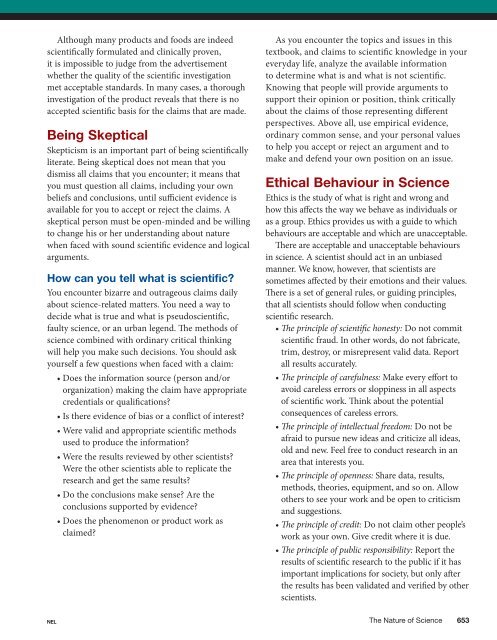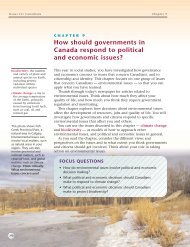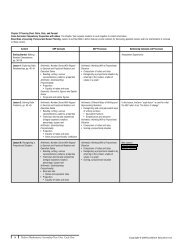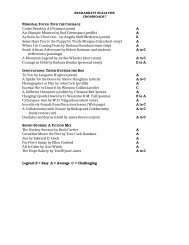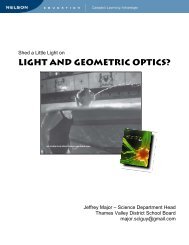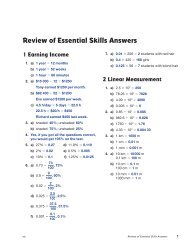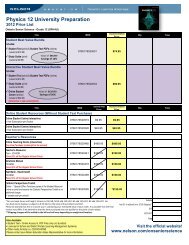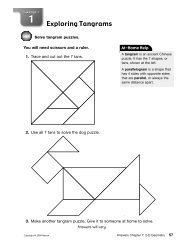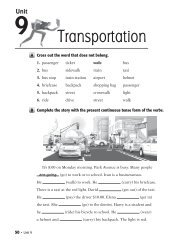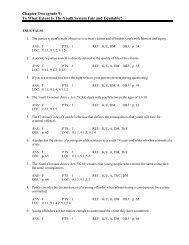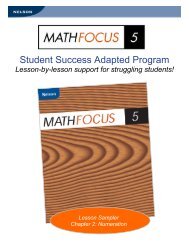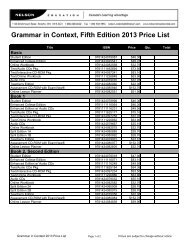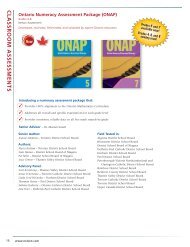PRE-PUBLICA TION EDITION - Nelson Education
PRE-PUBLICA TION EDITION - Nelson Education
PRE-PUBLICA TION EDITION - Nelson Education
Create successful ePaper yourself
Turn your PDF publications into a flip-book with our unique Google optimized e-Paper software.
Although many products and foods are indeedscientifically formulated and clinically proven,it is impossible to judge from the advertisementwhether the quality of the scientific investigationmet acceptable standards. In many cases, a thoroughinvestigation of the product reveals that there is noaccepted scientific basis for the claims that are made.Being SkepticalSkepticism is an important part of being scientificallyliterate. Being skeptical does not mean that youdismiss all claims that you encounter; it means thatyou must question all claims, including your ownbeliefs and conclusions, until sufficient evidence isavailable for you to accept or reject the claims. Askeptical person must be open-minded and be willingto change his or her understanding about naturewhen faced with sound scientific evidence and logicalarguments.How can you tell what is scientific?You encounter bizarre and outrageous claims dailyabout science-related matters. You need a way todecide what is true and what is pseudoscientific,faulty science, or an urban legend. The methods ofscience combined with ordinary critical thinkingwill help you make such decisions. You should askyourself a few questions when faced with a claim:• Does the information source (person and/ororganization) making the claim have appropriatecredentials or qualifications?• Is there evidence of bias or a conflict of interest?• Were valid and appropriate scientific methodsused to produce the information?• Were the results reviewed by other scientists?Were the other scientists able to replicate theresearch and get the same results?• Do the conclusions make sense? Are theconclusions supported by evidence?• Does the phenomenon or product work asclaimed?As you encounter the topics and issues in thistextbook, and claims to scientific knowledge in youreveryday life, analyze the available informationto determine what is and what is not scientific.Knowing that people will provide arguments tosupport their opinion or position, think criticallyabout the claims of those representing differentperspectives. Above all, use empirical evidence,ordinary common sense, and your personal valuesto help you accept or reject an argument and tomake and defend your own position on an issue.Ethical Behaviour in ScienceEthics is the study of what is right and wrong andhow this affects the way we behave as individuals oras a group. Ethics provides us with a guide to whichbehaviours are acceptable and which are unacceptable.There are acceptable and unacceptable behavioursin science. A scientist should act in an unbiasedmanner. We know, however, that scientists aresometimes affected by their emotions and their values.There is a set of general rules, or guiding principles,that all scientists should follow when conductingscientific research.• The principle of scientific honesty: Do not commitscientific fraud. In other words, do not fabricate,trim, destroy, or misrepresent valid data. Reportall results accurately.• The principle of carefulness: Make every effort toavoid careless errors or sloppiness in all aspectsof scientific work. Think about the potentialconsequences of careless errors.• The principle of intellectual freedom: Do not beafraid to pursue new ideas and criticize all ideas,old and new. Feel free to conduct research in anarea that interests you.• The principle of openness: Share data, results,methods, theories, equipment, and so on. Allowothers to see your work and be open to criticismand suggestions.• The principle of credit: Do not claim other people’swork as your own. Give credit where it is due.• The principle of public responsibility: Report theresults of scientific research to the public if it hasimportant implications for society, but only afterthe results has been validated and verified by otherscientists.NEL The Nature of Science 653


